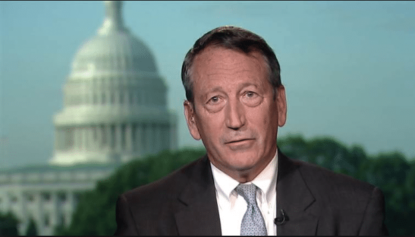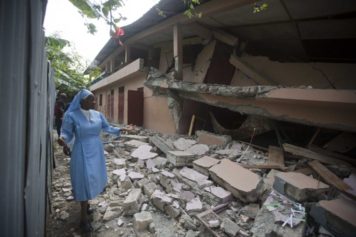Indicating increasing frustration with an ongoing political stalemate in Haiti, the international community warned Tuesday that the country could be headed for another political crisis with unpredictable consequences.
The tough stance from the United Nations and others comes after the U.S. informed the poverty-stricken nation last week that it could lose up to $301 million in aid if it doesn’t show that steps are being taken to hold free and fair elections.
But late Tuesday, the stalemate between Haiti’s Senate and President Michel Martelly appeared no closer to being resolved. Martelly, responding to a request by the Senate to redo the provisional electoral council charged with supervising the balloting, said no deal.
Instead, Martelly called on Senate President Simon Desras to use his “savoir faire” to move the process along.
“I remain convinced that you will use your know-how to convey to all those concerned by this agreement that it is time to implement it, each party in their individual capacities,” Martelly said.
For weeks, the Senate and Martelly have been at loggerheads over the balloting. In an April 25 letter to Martelly, Desras said senators were not responsible for the delay and had been trying to schedule elections since 2011. To move forward, he proposed that a new nine-member commission be named to oversee the elections in accordance with the amended 1987 Constitution. In return, a vote on the amended electoral law would be held in the chamber.
The law is necessary for elections to take place and has already been approved by Haiti’s lower chamber.
Martelly said he had taken various steps to hold elections, including participating in at least two mediation sessions, the latest of which took places under the auspices of the Catholic Church. That mediation, which lasted two months, produced an agreement known as the El Rancho Accord. Martelly repeatedly invoked the accord in his letter. His opponents have said its provisions for the electoral council are unconstitutional.
The core group of foreign ambassadors said if elections aren’t held, it could lead to the dissolution of parliament in January. That would allow Martelly to rule by decree, heightening tensions in a country that on Thursday will mark its third anti-government protest in five days.
“We encourage the Haitian political class to work toward compliance with all constitutional deadlines and to peacefully resolve this pre-electoral crisis,” the ambassadors said.
In the “highest interest of the nation,” the group said, it “ invites all actors involved to make the concessions required to create a climate of mutual trust and serenity to facilitate the work of an electoral council, which can provide the necessary guarantees for transparent and inclusive elections. After more than three years of delay, the organization of these elections is imperative for the country.”
Those sentiments were also shared by former Chilean President Ricardo Lagos, who ended a three-day mission to Haiti on Tuesday on behalf of the Club de Madrid, a group of former democratically elected presidents and prime ministers.
Lagos said he believes if all sides could resume the talks, they could overcome the current problems.
As he left Haiti, Lagos called on all of the political actors to “find common ground.”
Source: miamiherald.com


